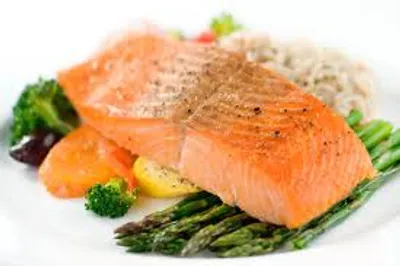What Is Known About Breast CancerHealthy Steps: Breast Cancer Prevention—First StepsHealthy Steps: Breast Cancer Prevention—Full ProgramBreast Cancer DetectionFrom Dr. Deborah’s Desk Most women aren’t thinking about breast cancer when they’re taking a shower, yet that is the moment when their whole world can change. A new hard lump sends a shock wave from the fingertips […]
Long observed and recently studied, there is a clear link between excess body fat and certain cancers, well described in this LA Times article by Sam Apple.
What Is Known About Breast Cancer RecurrenceHealthy Steps: Breast Cancer Recurrence Prevention—First StepsHealthy Steps: Breast Cancer Recurrence Prevention—Full ProgramBreast Cancer DetectionFrom Dr. Deborah’s Desk You had been doing everything right, and you still got breast cancer – how many times have we heard that story? Too many, that’s for sure. Traversing the complex world of […]
The possibility of a connection between red meat and breast cancer has been scrutinized repeatedly over the last two decades, probably in an effort to give women more control over a disease that so often seems to strike without reason. For instance, although there is indeed a hereditary component to breast cancer, most women diagnosed have no family history of the disease.
Two very important life-style choices might be of significant benefit if you want to prevent a recurrence of colon cancer.
A recently released study identified both regular exercise (60 minutes weekly) and twice weekly fish meals as factors associated with a reduced risk of cancer recurrence.
I recently spoke at the Weston Price annual conference, summarizing everything I could fit in about preventing breast cancer in a relatively brief presentation that several folks have asked me to put on the website.
I’m going to start here with the summary of preventive actions and write a separate article on the controversies and other information included in the talk. Let’s start with what you can do to prevent breast cancer.
When a serious group of researchers performs a meta-analysis of many already existing studies, screening them for quality and assessing the strength of their collective findings, I am always eager to see their findings.
An article posted online at BMJ (British Medical Journal) today reported the results of a meta-analysis involving over 800,000 participants and 20,000 breast cancer cases.
Do you have a friend or family member who has been diagnosed with colorectal cancer? For most of us, the disease has touched someone close to us or in our lives. Colorectal cancer is the third most commonly diagnosed cancer in the United States in both men and women. This year we can expect to see over 100,000 new cases of colon cancer and over 40,000 new cases of rectal cancer. Over a lifetime, Americans have about a 5% (1 in 20) risk of colorectal cancer.
Although researchers publishing online in the Journal of Cancer Research admit that “only” half of the cancers are affected by lifestyle conditions of inactivity and obesity, I’d say that is a huge “half”, at 54%.
A newly releasted report on the incidence of breast cancer appeared in JAMA today indicating that the incidence of metastatic breast cancer in women 25- to 39-years of age has almost doubled from 1976 to 2009, from 1.53 to 2.90 per 100,000 women, or a growth rate of over 2% per year.
Did you know that more than 200,000 women in the US are newly diagnosed with breast cancer each year? We have long known that physical activity decreases breast cancer risk and that excess weight increases the risk, but recent research has clarified those points with a few more specific details.
Scientific studies have identified various ways in which cruciferous vegetables reduce the risk of breast cancer. Polish women who continue to eat cabbage more than three times a week after moving to the US, for instance, maintain a low risk profile similar to women remaining in Poland. Give up cabbage, it’s at your own peril: risk rises to equal that of their US born neighbors.











